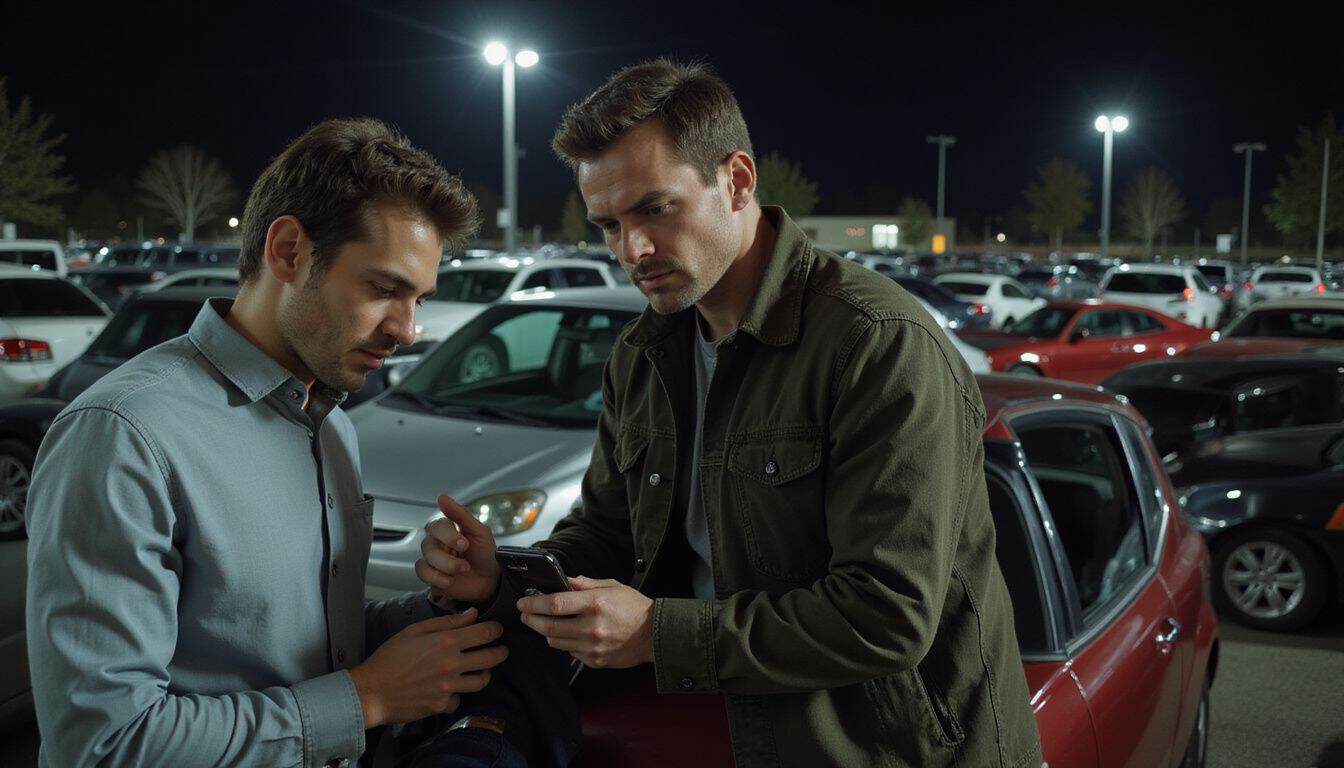Dealing with rental car damage can add stress to your vacation. A small scratch or dent may lead the rental company to hit you with high fees and charges. This post guides you step-by-step on how to get out of rental car damage, making it easier for you to dispute claims and avoid paying unfair penalties.
Keep reading for our top tips on dodging extra costs!
Key Takeaways
Snap clear photos of your rental car from all angles before you leave—this helps show any scratches or dents were already there.
If you do cause any damage, call the rental agency right away, then quickly follow up with your own insurance and credit card companies to confirm what’s covered.
Ask the rental company for detailed documents and photos backing up their claims about new damage.
Match their damage reports against the pictures you took earlier, to make sure you aren’t being wrongly charged.
Credit card coverage often protects rental cars—but you usually need to turn down the agency’s own insurance first.
Table of Contents
Steps to Take Immediately After Rental Car Damage
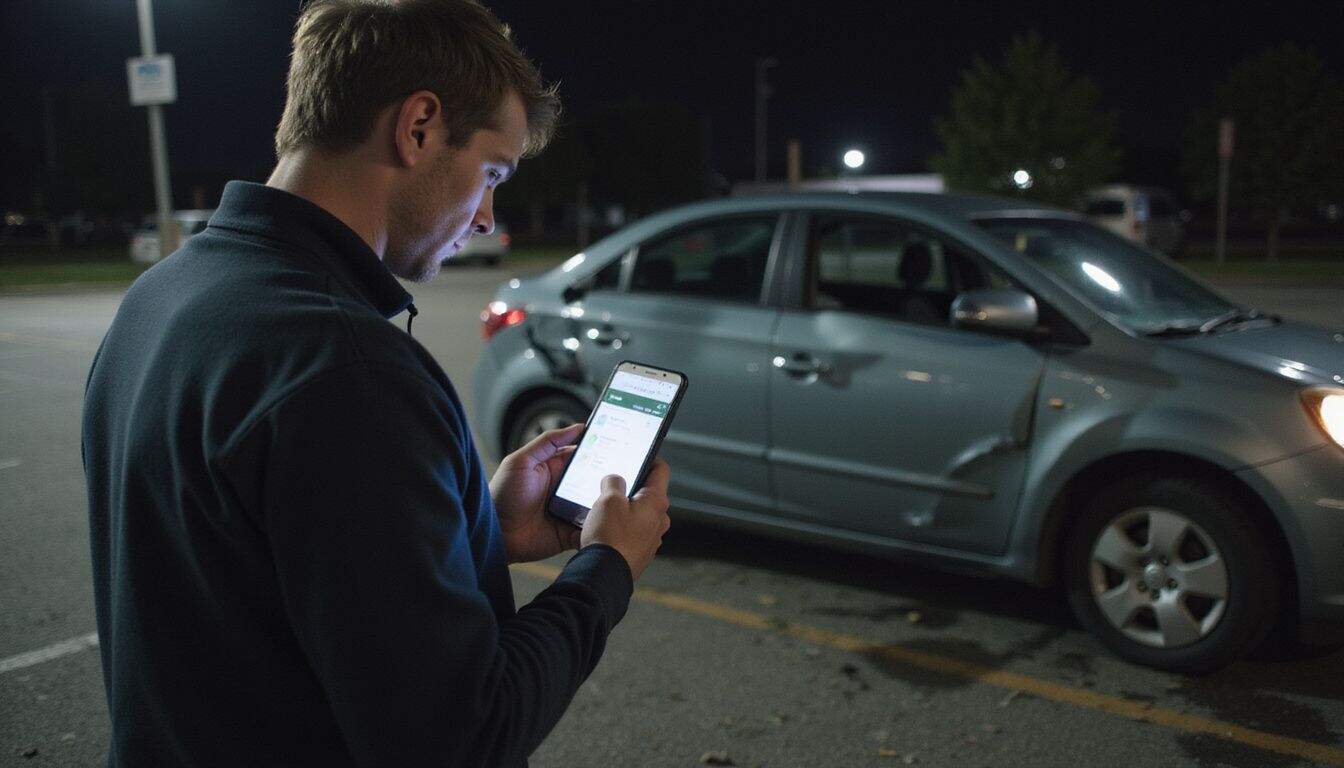
Quick action after rental car damage can save you money and stress. Your first moves will protect your rights and create a paper trail to fight unfair charges.
Ensure everyone’s safety

Your safety comes first after any accident in a rental car. Pull safely off the road, away from moving traffic, if you can. Immediately check yourself and your passengers for injuries.
If someone seems seriously hurt, do not hesitate—call 911 right away. If you notice smoke or gas odors, move everyone safely away from the vehicle, as this reduces the risk of explosion or fire.
Protecting your health and safety always matters more than worrying about rental vehicle damages.
Don’t rush into insurance details before confirming everyone is safe. Once things seem secure, you can capture clear photographs of the damage and gather information your insurance company will need.
The rental company also wants you to prioritize people’s safety. In fact, most rental agreements clearly say human safety must take priority over protecting the vehicle in an emergency.
Document the damage with photos and notes
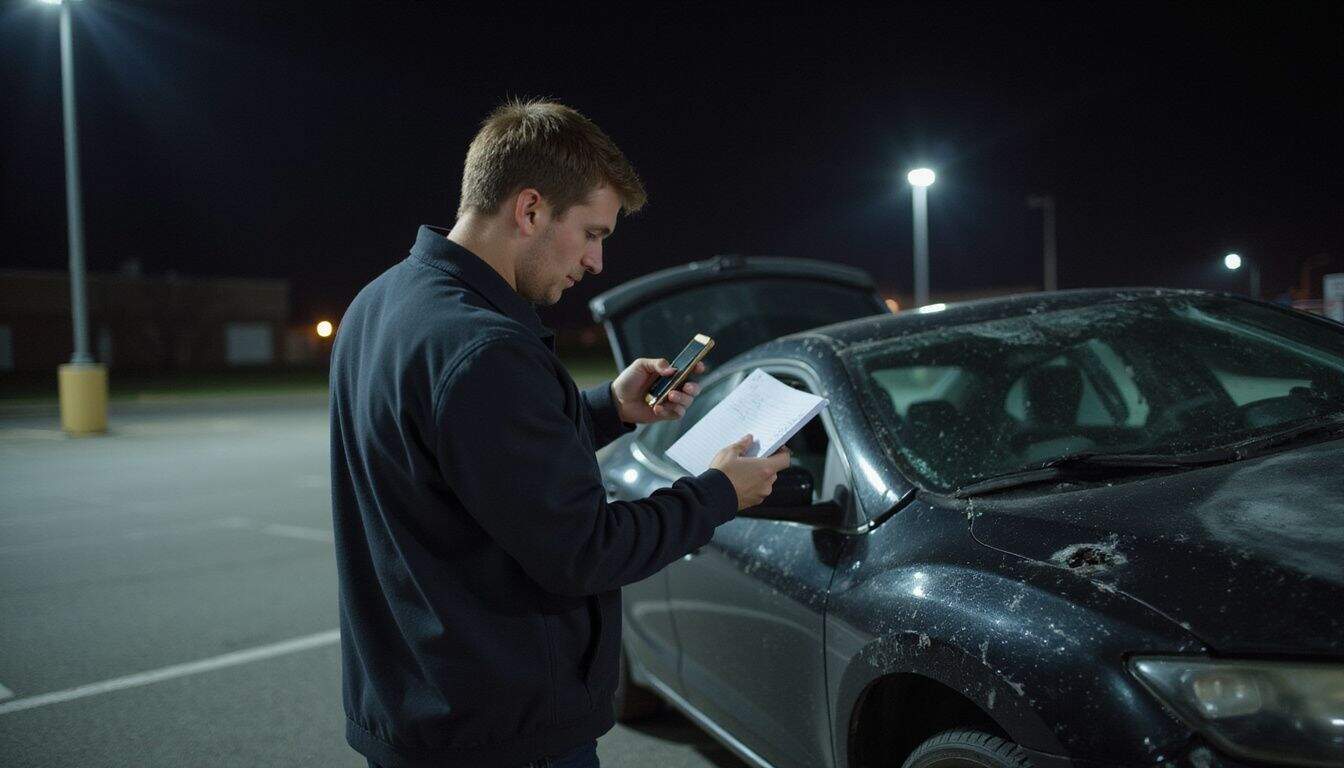
First, ensure everyone is safe and unharmed. Then grab your phone—you’ll need photos as evidence, in case the rental company blames you unfairly for any damage. Take clear, high-resolution pictures from every angle, paying close attention to dents, scratches, and broken areas.
Also snap shots of the license plate and any distinguishing features that make the vehicle easy to identify. This visual record can become extremely valuable if you have to dispute charges later on.
Next, jot down all details of the incident. Document the exact location, date, and time clearly. Include specifics about the car such as the make, model, year, and color. If another driver was involved, collect their name, phone number, and insurance info as well.
Car rental companies often try charging renters for pre-existing damage, so these written details can shield you from unfair costs later. Plus, some credit card companies offer rental car protection, which shields rental car companies from liability and could help pay any claims the agency files against you.
Exchange contact and insurance information if another party is involved

If you ever have an accident while driving a rental car, quickly collect all important information from the other driver. Get their full name, home address, phone number, email, and insurance details immediately.
Also, ask for their driver’s license number and car registration information. These details protect you later, in case you need to file an insurance claim. For accuracy, take clear photos of their insurance card and driver’s license.
Documentation is your best defense against unfair damage charges.
Speak with any nearby witnesses and note down their names and contact numbers. Having witnesses can help your side of the story if disagreements arise later about the accident’s cause.
Stay calm and never admit blame or let anyone know it’s a rental. Some folks may try to exploit the situation if they find out you’re insured through a rental company. Keep conversations short and stick strictly to necessary facts only.
Notify Relevant Parties
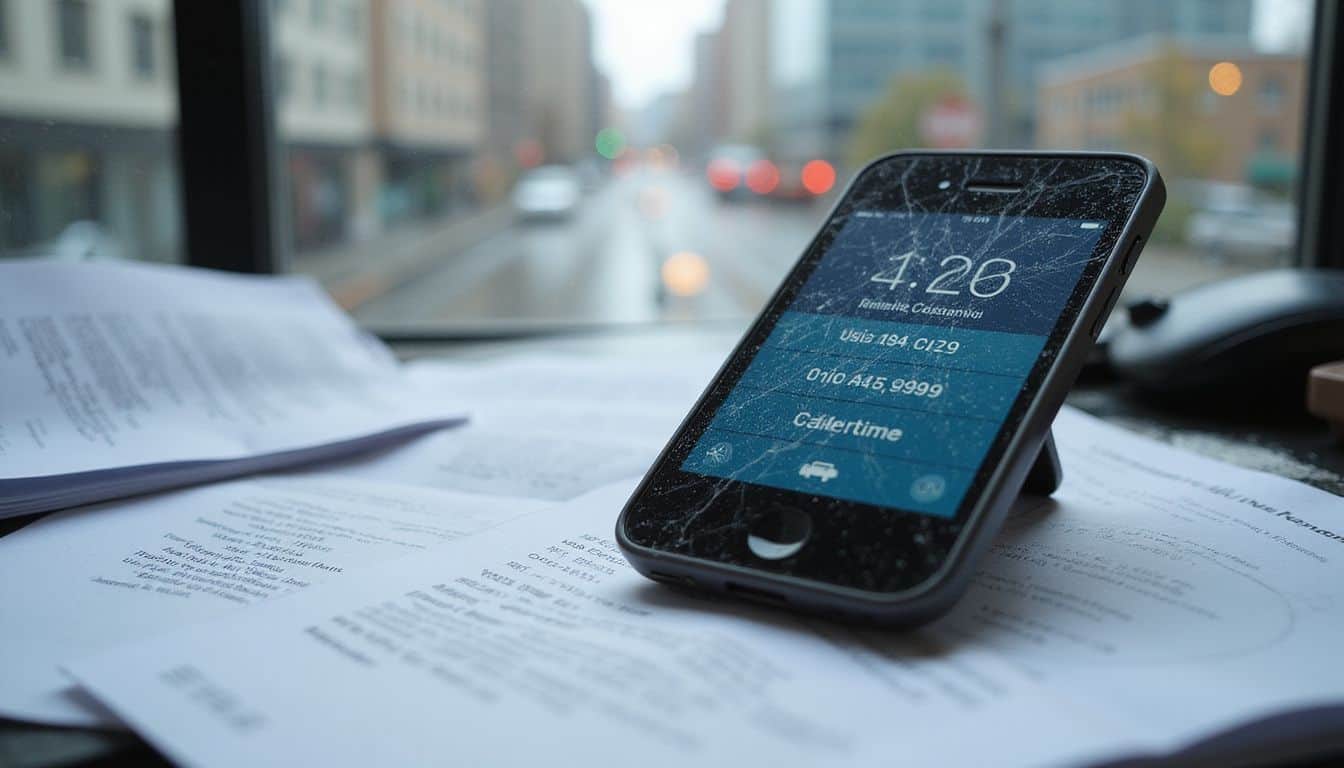
Quick action matters after a rental car mishap – you need to call the right people right away. Your first calls should go to the rental company’s damage desk and your own car insurance agent to start the claims process.
Contact the rental car company

If your Budget rental car gets damaged, pick up the phone right away and call their 24-hour roadside service at 800-354-2847. Calling immediately shows you’re handling the situation responsibly—this can save you from extra charges later.
Clearly explain to the representative what occurred, and listen carefully to their directions on filing a report. Budget, along with most rental car companies, typically asks you to complete forms about any damage, so it’s helpful to keep your rental agreement close by.
Don’t delay making that call, as waiting could raise red flags with the rental company. While you’re on the line, jot down some quick notes and be sure to ask for the name of the person helping you.
Request an email confirmation that your report was successfully submitted. After finishing up with Budget, reach out to your own insurance provider to find out exactly what your policy covers for rental car accidents or damage.
Inform your personal insurance provider

Once you’ve notified the rental company, reach out to your personal auto insurance provider next. It’s important they hear about the damage immediately. Many personal auto policies cover rental cars to some extent, but the specifics depend on your policy.
A few years ago, I got into a minor accident with a rental car on a business trip. Standing there in the parking lot, I called up my insurance agent. She explained exactly what my policy covered, and she guided me through what to do next.
Your personal auto policy is often your first line of defense when rental car damage occurs.
The insurance agent will talk with you about the accident details and start a claim, if necessary. They’ll go over your collision coverage carefully, pointing out your deductible clearly.
Say you have a deductible of $400 and the accident damage totals $10,000—you would only pay the $400, and your insurance would handle the remaining $9,600. Making this call helps clarify the potential costs you’ll face, giving you a solid idea of your financial obligation before the rental agency sends any paperwork your way.
Check coverage from your credit card company
Your credit card can help you avoid expensive rental car damage fees. Many travel credit cards include rental car coverage, but they also come with their own limits. For example, Chase Sapphire Preferred and Reserve cards offer primary rental insurance—but you have to decline the rental agency’s coverage first.
Primary insurance means your card covers costs before your personal auto policy even kicks in. Still, be careful—special vehicles like luxury cars or trucks, and rentals abroad, typically fall outside these coverage options.
If an accident happens, call your credit card company immediately. Ask clearly what types of damage they’ll cover and understand your responsibility. Make sure to find out about deductibles, claim steps, and all paperwork you must send in.
Knowing these rules will help you avoid unexpected charges and hassles later. Next, we’ll cover exactly how to manage rental car damage claims smoothly.
How to Handle Rental Car Damage Claims
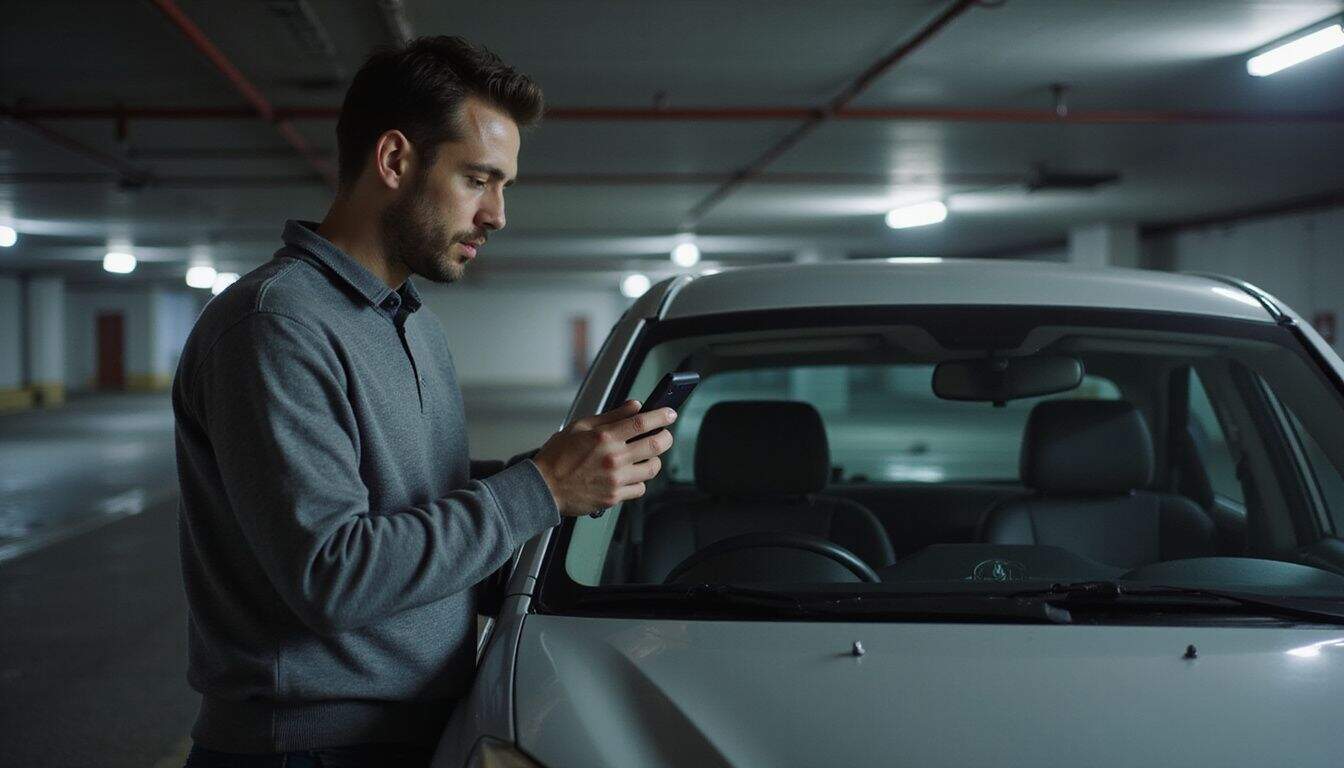
When damage happens to your rental car, you need to know how to deal with the company’s claims process – learn the smart ways to check their damage policy, get full details about the claim, and match it with your own photos to avoid paying for scratches that weren’t your fault.
Understand the rental company’s damage policy
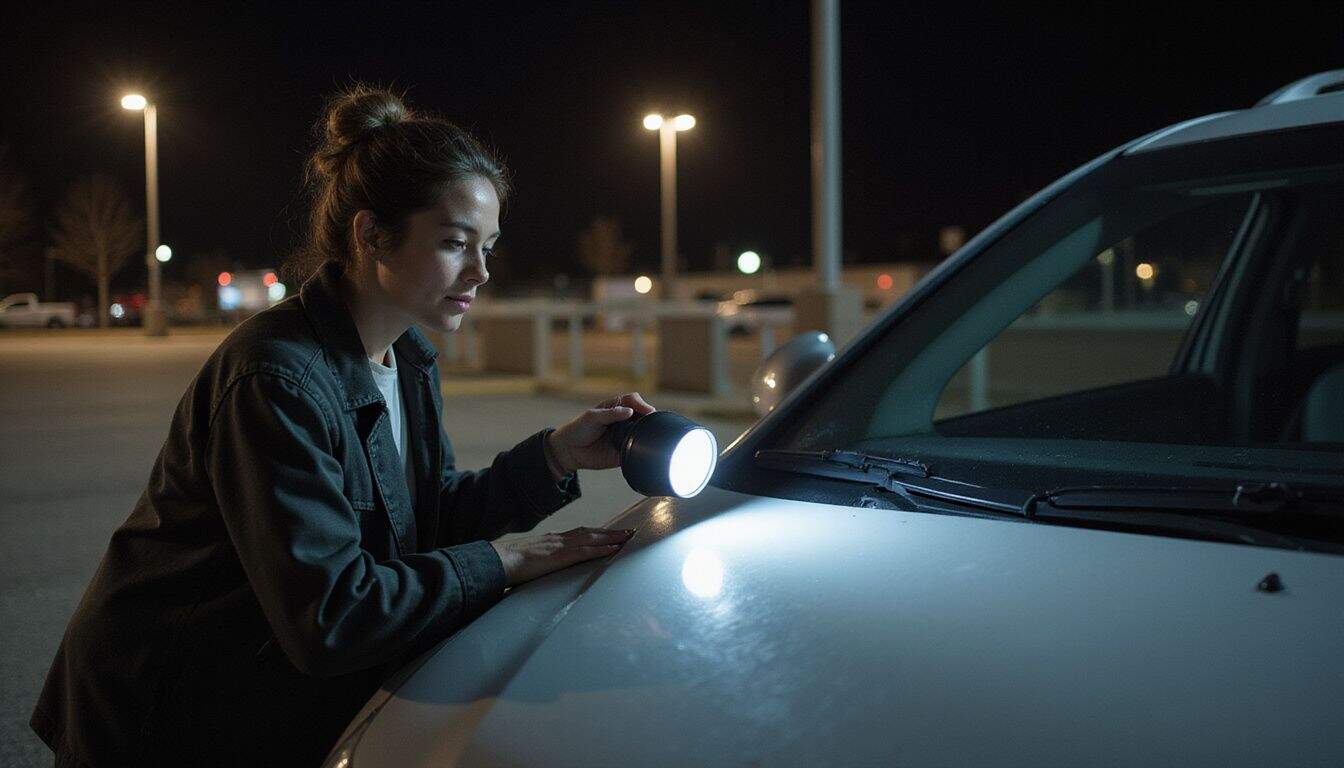
Rental car companies each have their own rules about what counts as vehicle damage. Every business has a damage pricing guide detailing the costs for dents, scratches, and other minor problems.
Ask to see this price sheet clearly, before signing anything. Most rental agreements hold you fully responsible, even for tiny marks, throughout your rental period. Collision Damage Waivers (CDW) often exclude certain parts, like tires, headlights, or glass—so read the smaller print carefully.
Many renters skip over this part and end up facing unexpected fees later on. Always clarify which damages are considered “normal wear” and without added charges; these standards differ between providers.
Carefully read your entire rental agreement instead of quickly signing where indicated. Specifically, look over areas about insurance limits, damage fees, and accident procedures. Smart travelers take clear pictures of the vehicle’s condition before leaving the rental lot—this simple step may save you money for dents or scratches that were already present.
Your credit card company might also offer rental car coverage, but confirm beforehand if their plan fills gaps left by the rental agency’s policies.
Request detailed documentation of the claim
Always insist that the rental company provide clear and complete proof for any damage claim. One time, I got hit with a $300 bill over a scratch I didn’t even cause. The rental company just sent a fuzzy photo and a quick invoice.
I didn’t accept it—I asked them for the official damage report, repair quotes, and detailed pictures from before and after my rental period. They couldn’t prove clearly that the scratch occurred while I had the car, so they dropped the claim!
Make sure you carefully check every document they give you, including dates, vehicle descriptions, and which damages they’re claiming. Most rental companies have an obligation to show exactly what the charges cover, along with clear reasons for them.
If they have an online dispute option, use it—it usually makes things faster. And definitely save copies of emails, photos, and phone call notes related to the issue.
Your right to see complete documentation isn’t just a courtesy—it’s your financial protection against unfair charges.
Compare the claim with your collected evidence
Once the rental company sends detailed claim documents, it’s time to double-check their records against your own evidence. Pull out the photos you snapped right before driving off the rental lot.
Check the timestamps—they clearly show the car’s condition before and after your rental. Many women have faced rental agencies trying to bill them for dents or scratches that existed way before pick-up.
Your pictures provide solid proof against unfair claims. Carefully see if the company mentions damage that your images don’t show. Sometimes, what counts as normal wear—like minor scuffs—turns into major claims on their reports.
If you notice discrepancies like these, quickly reach out to your insurance provider. Your credit card provider may also offer rental coverage, helping you challenge charges through their own chargeback procedures.
Tips to Dispute Unfair Damage Charges
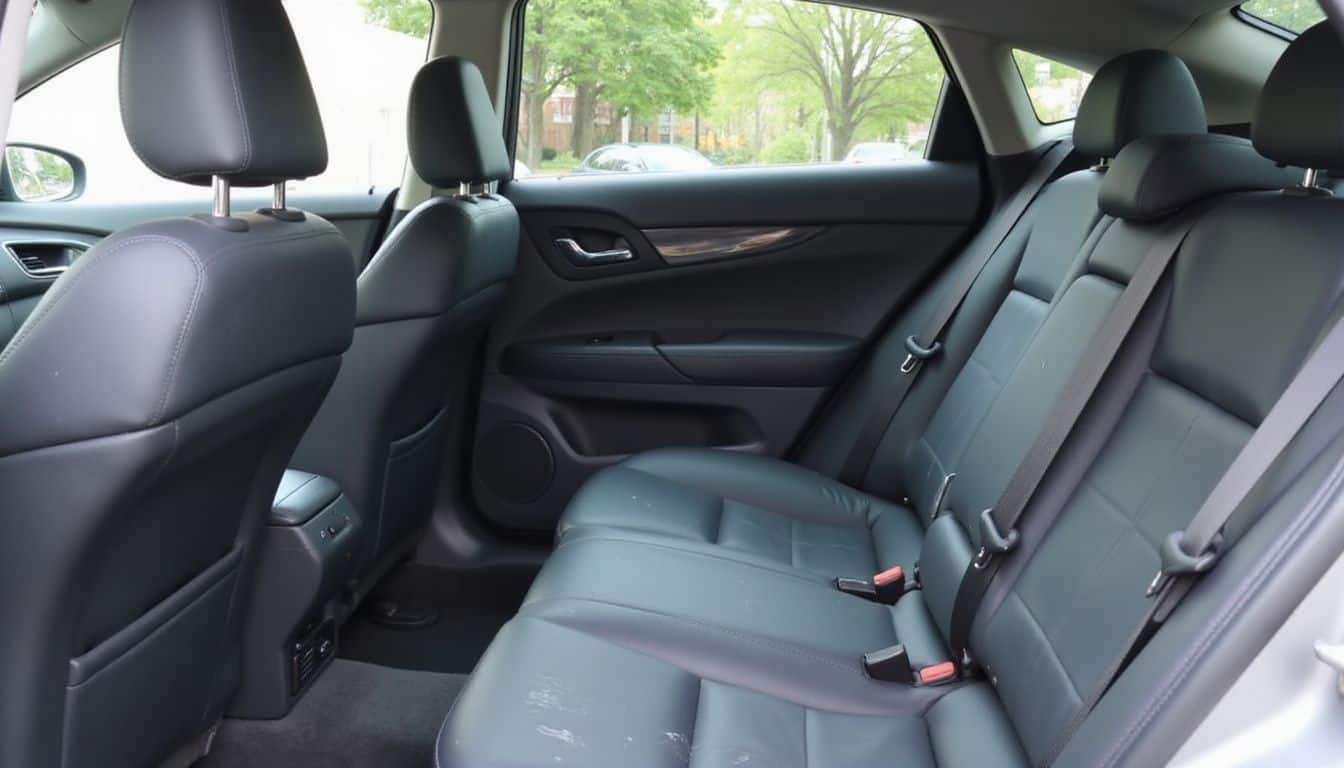
Rental companies sometimes charge for damage you didn’t cause. Your photos and records can save you hundreds of dollars when fighting these unfair fees.
Provide proof of pre-existing damage
Savvy renters always snap clear photos of their rental cars before driving away from the lot—trust me, it’s worth it. I learned this lesson through experience, after getting charged for a door ding I didn’t cause.
Your smartphone camera acts as your best protection against unfair damage accusations. Take sharp, timestamped pictures from every angle of the car, paying close attention to scratches, dents, and marks already there.
Although rental agreements usually mention existing damage, smaller details get easily overlooked and might cost you later.
Having an employee confirm and sign your recorded damages adds another layer of safety. Some rental car companies now provide digital inspection features within their apps, helping create an official record of current damages.
Such recordings can make all the difference in settling potential disputes. Even your credit card provider could request these details if you have to use their coverage to dispute unwanted charges.
Keep all photos, notes, and digital records safe until your credit card statement arrives without surprise charges from the company.
Use photos and evidence to support your case
Photos can save you big headaches in rental car disputes—I found out the hard way after getting billed for a dent I didn’t make. Before you drive away, grab your smartphone and snap clear, detailed pictures from every angle.
Make sure the images have timestamps and capture all existing dents, scratches, or marks. These simple steps give you strong proof if the company later charges you unfairly. Today, many rental agencies accept digital photos as valid evidence, which makes fighting fake claims much easier.
Written records matter too. Keep all your rental documents, receipts, and notes about any conversations with rental staff. Having these details handy—with your photos—helps build a strong case to challenge the charges through your credit card provider or insurer.
For extra security, ask the rental employee to sign off on your initial damage report before leaving the lot. That signature provides solid proof that the company was aware of existing damage.
If the rental company ignores your evidence and refuses to drop unfair fees, legal help might be your best next step. Next up, let’s talk about how involving an attorney can improve your chances in fighting rental car damage claims.
Seek legal assistance if necessary
Legal support can save you big headaches if a rental car company hits you with unfair damage charges. I once dealt with a $900 fee for a scratch that was already on the car before I drove it.
My lawyer sent just one firm letter, and the company quickly dropped their claim in a matter of days. Rental agreements are often packed with tricky wording, usually favoring the company instead of you.
A skilled lawyer will spot unfair terms easily and help you push back. In tougher cases, getting legal support could be the simplest way to avoid paying for damage that’s not your fault.
A lawyer can also step in to negotiate with the rental company if you can’t reach a solution yourself. Lawyers understand exactly what evidence is needed and how to present it effectively.
Many attorneys offer free initial meetings for rental car cases, giving you a clear idea of how strong your position really is.
Now, let’s take a look at how rental car damage claims might evolve soon—as new technologies emerge and reshape how these disputes unfold.
How Will Handling Rental Car Damage Claims Change in 2025?
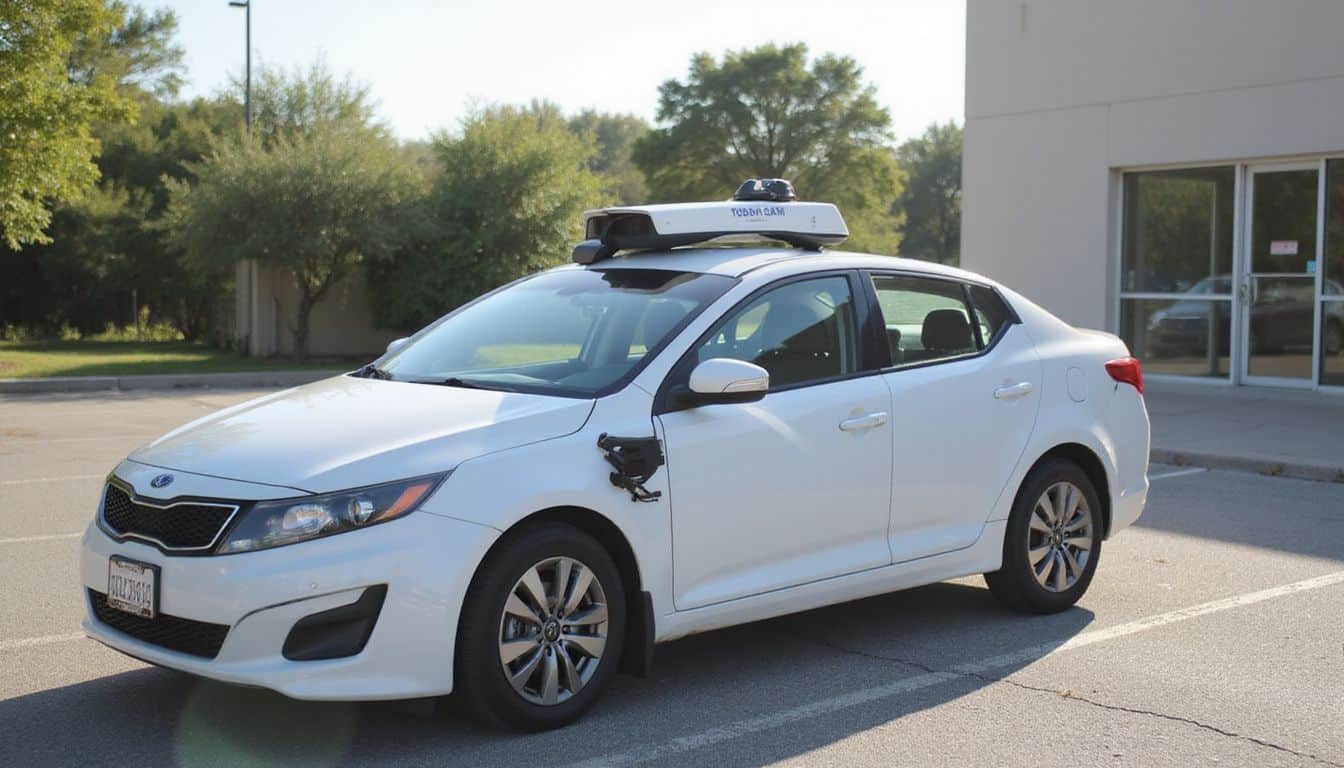
By 2025, rental car damage claims will look totally different. AI tech will inspect your rental car instantly as soon as you drop it off, detecting even the smallest scratches without needing human eyes.
Say goodbye to those frustrating arguments about dents and scrapes. I once had to spend hours proving a small mark wasn’t my fault—soon, headaches like that will vanish! Smart car tech, called telematics, will record exactly how any accident happened.
That makes it tough to dispute the facts after a car accident.
You can forget about waiting around while someone checks your rental. Most rental services will switch to contactless returns. You just park, snap quick pictures on your phone through an app, and go.
Your credit card company or insurer receives updated details immediately if there is damage. No more unexpected charges hitting you weeks later. These changes make women traveling solo feel safer too—no more waiting around in gloomy garages for inspections.
Loss damage waivers and insurance claims will move quicker, cutting paperwork and reducing stress.
People Also Ask
What should I do if I notice damage on my rental car before driving away?
Snap pictures of every scratch, dent, or mark you find on the vehicle before you leave the rental lot. Have the rental company rep record these issues clearly on your paperwork. Doing this step right away can prevent you from being blamed for damage that you didn’t cause.
Does my credit card include protection for rental cars?
Many reward-based credit cards, particularly premium options like the American Express Platinum Card, offer built-in rental car insurance. Always double-check the benefits your specific card provides before paying extra at the rental counter—you might already have coverage.
How can I prove I’m not responsible if the rental car is stolen or involved in a hit-and-run?
Immediately file a report with the police. Then send copies of that report to your rental agency by certified mail and email—this gives you clear documentation. Taking quick action like this proves you’re handling the situation responsibly.
Can rental car loyalty programs help with damage-related disagreements?
Yes! Rental loyalty customers often get treated better during disputes over damages or fees. For instance, these programs might offer discounted deductibles or even drop some extra charges for their regular users.
Which damage-related details should I carefully check in the rental car agreement?
Check carefully for terms mentioning “loss of use” charges—this is when they bill you for lost rental days while the car is in the shop. Find out what your deductible amount is, and be clear about what they call regular wear versus actual damage. Knowing these fine points ahead of time can help you avoid unexpected charges later.
What’s the best way to avoid problems with a rental car’s keyless entry system?
Test and confirm your entry code works correctly before you drive off the lot. Keep every receipt and confirmation email handy, just in case there’s a glitch in the system or someone manages to get into the trunk. Tech issues shouldn’t lead to extra charges coming out of your pocket.
References
https://www.nerdwallet.com/article/travel/what-to-do-if-you-have-an-accident-in-a-rental-car (2025-03-25)
https://www.wikihow.com/Dispute-Rental-Car-Damage-Claims (2025-01-27)
https://www.askadamskutner.com/auto-accident/rental-car-damage-claims/
https://www.heidarilawgroup.com/blog/what-to-do-after-an-accident-in-a-rental-car/ (2024-07-18)
https://www.curanahlers.com/post/what-to-do-if-you-damage-a-rental-car-without-insurance (2024-11-26)
https://www.budget.com/en/help/usa-faqs/rental-car-accident
https://disb.dc.gov/page/things-know-about-car-insurance-and-rental-cars-starting-your-road-trip
https://carinsurent.com/car-rental/the-complete-guide-to-damage-to-rental-car/
https://www.csmonitor.com/Business/Saving-Money/2015/0320/How-to-dispute-and-win-rental-car-damage-claims (2015-03-20)
https://www.mightytravels.com/2025/01/how-to-handle-rental-car-damage-claims-7-steps-to-protect-your-travel-budget/ (2025-01-13)
https://blog.rentalmoose.com/dispute-unfair-rental-car-charges/
